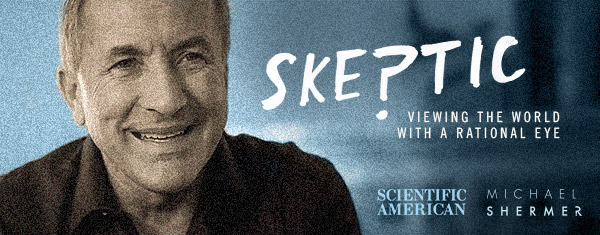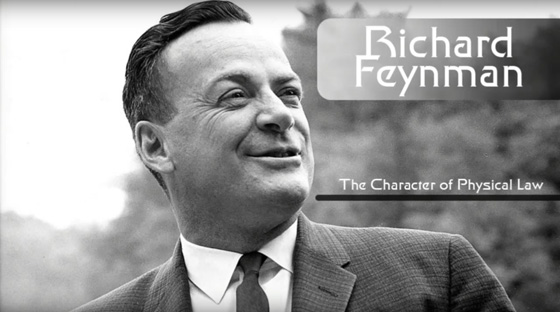In this week’s eSkeptic:

SCIENTIFIC AMERICAN “SKEPTIC” COLUMN FOR DECEMBER 2017
Outlawing War: Why “outcasting” works better than violence
After binge-watching the 18-hour PBS documentary series The Vietnam War, by Ken Burns and Lynn Novick, I was left emotionally emptied and ethically exhausted from seeing politicians in the throes of deception, self-deception and the sunk-cost bias that resulted in a body count totaling more than three million dead North and South Vietnamese civilians and soldiers, along with more than 58,000 American troops. With historical perspective, it is now evident to all but delusional ideologues that the war was an utter waste of human lives, economic resources, political capital and moral reserves. By the end, I concluded that war should be outlawed.
In point of fact, war was outlawed … in 1928. Say what?

In their history of how this happened, The Internationalists: How a Radical Plan to Outlaw War Remade the World (Simon & Schuster, 2017), Yale University legal scholars Oona A. Hathaway and Scott J. Shapiro begin with the contorted legal machinations of lawyers, legislators and politicians in the 17th century that made war, in the words of Prussian military theorist Carl von Clausewitz, “the continuation of politics by other means.” Those means included a license to kill other people, take their stuff and occupy their land. Legally. How? […]
![Sigmund Freud and his daugher Anna Freud on holiday in the Italian Dolomites. [Public domain via Wikimedia Commons]](https://www.skeptic.com/eskeptic/2017/images/17-12-13/Sigmund-and-Anna-Freud.jpg)
In this week’s eSkeptic, Raymond Barglow discusses how the psychoanalytic tradition inaugurated by Sigmund Freud casts light on the mainsprings of human motivation and helps to explain human irrationality and encourage recovery.
Why Freud Matters
Sigmund Freud, Anna Freud, and the Skeptical Humanist Tradition
by Raymond Barglow
“A great part of my life’s work has been spent to destroy my own illusions and those of humankind.”
“What a distressing contrast there is between the radiant intelligence of the child and the feeble mentality of the average adult.”
Over the past half century, some of Sigmund Freud’s ideas have been debunked, and he personally has been exposed as a doctor who misunderstood and harmed a good number of his patients.1 I do not take exception to this evaluation. Especially during the years when he was building his career as a doctor, the founder of psychoanalysis deceived the public, if not himself, about the evidence for his views and his ability to cure. There is, however, another side to Freud’s character and to his achievements that the critics overlook. Indeed I believe that Freud belongs up there in the pantheon of great skeptical humanists alongside Socrates, Voltaire, and Hume. Like them, Freud believed that reason could help people undo the hypocrisies and deceptions in their lives, permitting a recovery of sanity and a measure of happiness.2
As well, Freud’s critics fail to recognize the contributions made over the past century by the psychoanalytic movement that he inaugurated. To make this second point, I’ll review the accomplishments of Sigmund Freud’s daughter Anna, whose role was pivotal in developing psychoanalysis in an open-minded, evidence-based way. Her work is a telling counterexample to the broad claim that psychoanalysis is an irrational theory and ineffective practice.3 Anna Freud and her colleagues not only observed assiduously, but also subjected the very concept of “observation” to scrutiny. When adults are observing and interacting with children, Anna Freud recognized, their perceptions may be clouded by their prior expectations: observers see what they wish to see and overlook or push aside everything else.
Mistaking Our Own Motives
Although Sigmund Freud’s own professional conduct was marred by the prejudices of his time, some of his concepts do cast light on the sources and nature of human irrationality. Freud believed that the mind is influenced by unacknowledged motives and unspoken memories. And that belief informed not only his “talking cure” therapy but also his social activism on behalf of issues that ranged from free mental health care to the humane treatment of shell-shocked soldiers who had survived the First World War.
Since the early 17th century when Rene Descartes penned his Meditations, rationalist philosophy had held that the human mind is unified and transparent to itself. Freud affirmed instead—and this is the premise that still informs psychoanalysis today—that humans are inclined, by nature and by nurture, to mistake their reasons for believing and acting. That we are fallible in this manner, mentally conflicted and influenced in ways that we only partly understand, is a condition that Freud found illustrated ubiquitously in dreams, slips of the tongue, religious beliefs, sexual preferences, and the foibles of our relationships with others. And he made this “diagnosis” of the human condition the basis for doing psychotherapy in a new way. […]
A NEW STORY!
How C0nc0rdance Became a Card-Carrying Skeptic
As we announced a few weeks ago in eSkeptic, we asked several friends to tell us about those “aha!” moments that led to their becoming skeptical thinkers. As promised, here is another one of their incredible stories on YouTube. Enjoy!
The creator of this video writes: “Skepticism, to me, is the process by which I evaluate claims. It’s not cynical, rejecting every idea that makes me uncomfortable. It’s not credulous, accepting new ideas because they’re edgy, counter-culture or popular. I try to apply the same process of empirical evidence-gathering, careful study, and rational argument to every aspect of my life, from the laboratory, to the Internet, to conversations with friends.”
TELL US YOUR STORY!
Tell us your story and become a card-carrying skeptic! Thank you for being a part of our first 25 years. We look forward to seeing you over the next 25. —SKEPTIC
Here’s what’s in the latest issue of Skeptic magazine (22.4): When Science Becomes the Enemy • No Barriers to Inquiry • When Secularism Becomes a Religion: The Alt-Left, the Alt-Right, and Moral Righteousness • Radically Wrong in Berkeley • I Am Not a Racist, and So Are You: An Unauthorized Peek at the Great Shaming Taking Place at an Institution of Higher Learning Near You • From Camelot to Conspiracy: Memory, Myth, and the Death of JFK • The SkepDoc: Diet Sodas • Junior Skeptic on Ghost Ships, and more…













